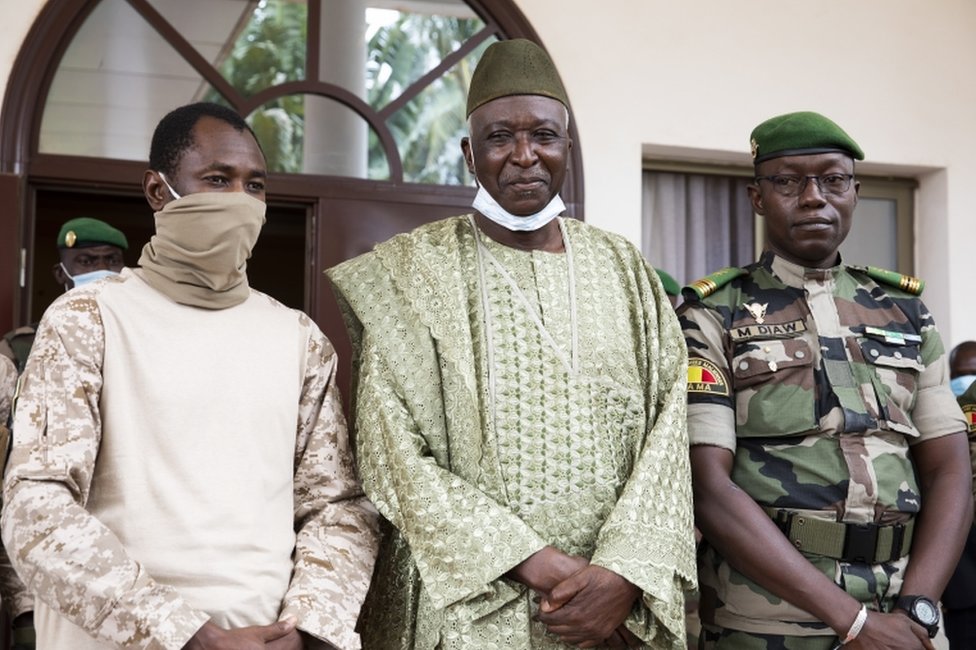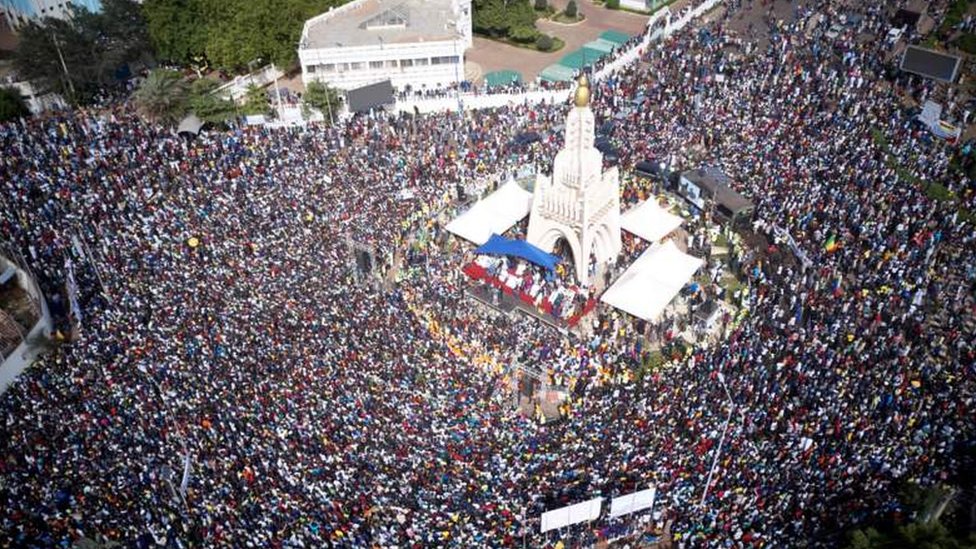 image copyrightEPA
image copyrightEPAMali’s new president is to be sworn into office, five weeks after the overthrow of Ibrahim Boubacar Keïta.
Former Defence Minister Bah Ndaw, 70, was picked by the coup leader, Colonel Assimi Goita, to head a transitional government until elections, which are expected in 18 months.
Col Goita will be his vice-president.
The appointment of a civilian president was a condition for the West African regional group, Ecowas, to lift the sanctions it imposed after the coup.
Stocks of goods are running low in the capital, Bamako, where businesses are hoping for an announcement from Ecowas after the inauguration.

Who will really rule Mali?
By Mayeni Jones, West Africa correspondent
One thing that is unclear is how far Bah Ndaw will be able to call the shots after he’s sworn in.
He was chosen because he was well respected, both in the military and by the general public. He’s also said to get on well with Col Assimi Goita.
Portraying a unified front will be central to the success of the tenure of Mr Ndaw and his vice-president. Any perception that the interim president is not really in charge could lead to renewed international pressure on the junta.
West African heads of state are afraid the coup in Mali may lead to other uprisings in a region that is facing several elections in the coming months.
Members of the opposition M5-RFP coalition which organised mass protests against the ousted leader will also be watching closely, having already felt sidelined in the process of appointing a replacement.
The next 18 months will be crucial in determining how close or far Mali steers from democracy.

Why was there a coup?
President Ibrahim Boubacar Keïta was overthrown on 18 August following mass protests against his rule over corruption, the mismanagement of the economy and a dispute over legislative elections.

Mali is also struggling with intense Islamist violence, with thousands of French, African and UN troops based in the country to tackle the militants.
The coup sparked international condemnation, but it was welcomed by many Malians.
Related Topics
Click Here to Visit Orignal Source of Article https://www.bbc.co.uk/news/world-africa-54292919


